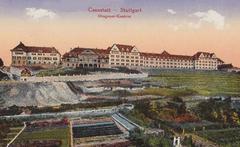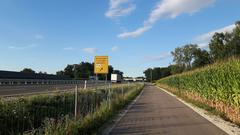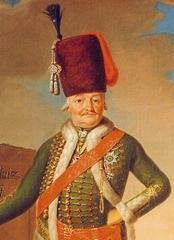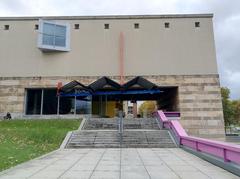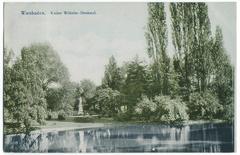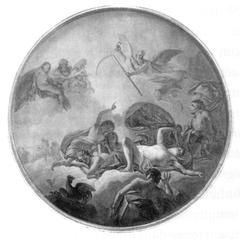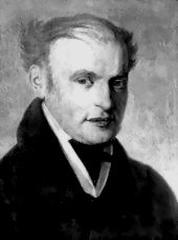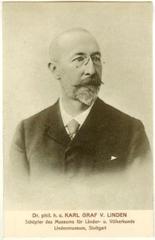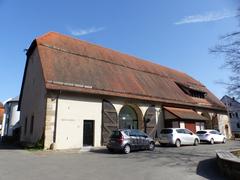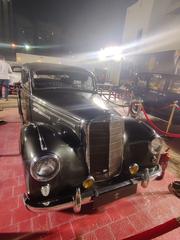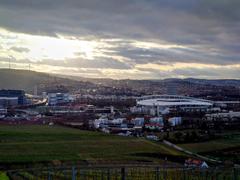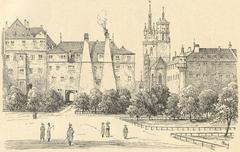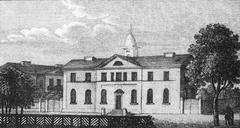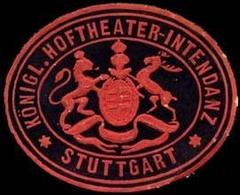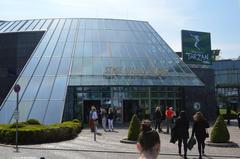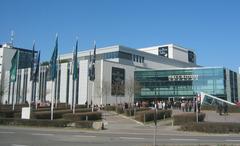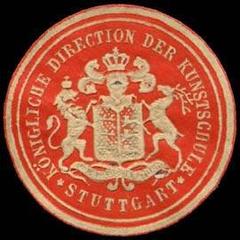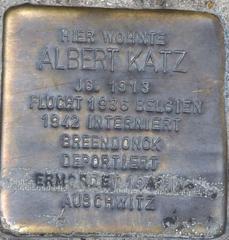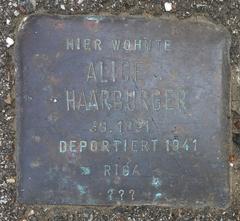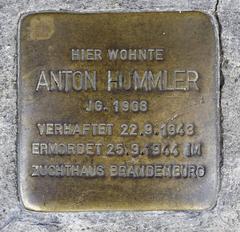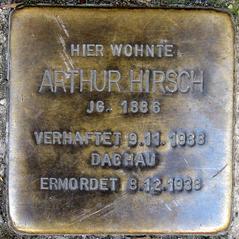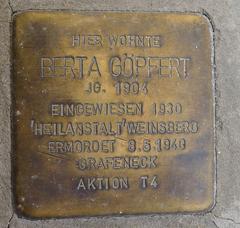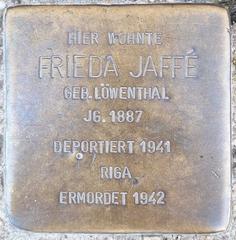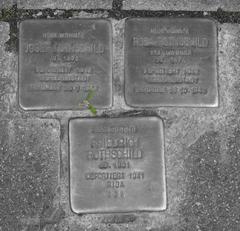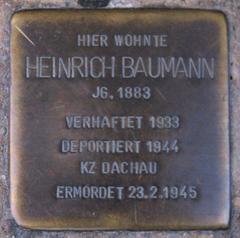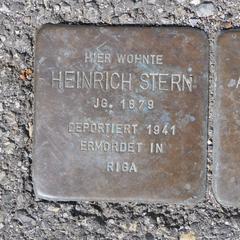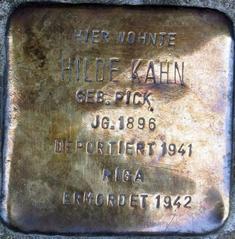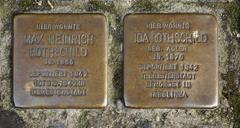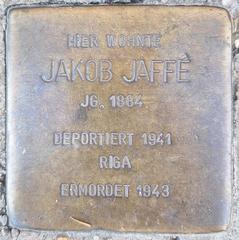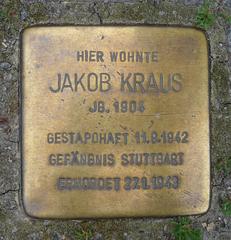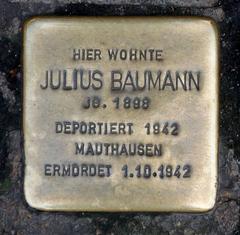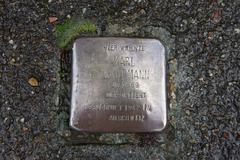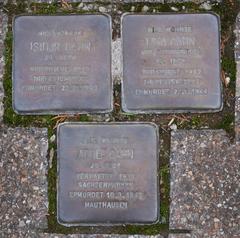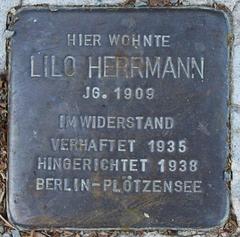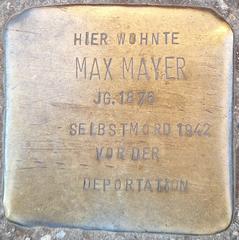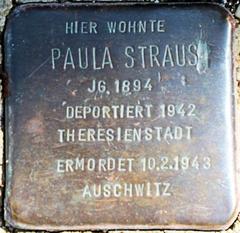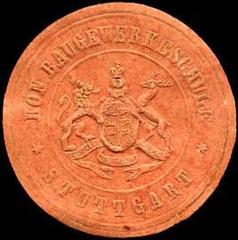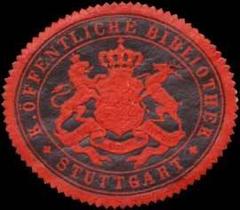
Library of Contemporary History Stuttgart: Visiting Hours, Tickets, and Historical Sites Guide
Date: 04/07/2025
Introduction
The Library of Contemporary History Stuttgart (Bibliothek für Zeitgeschichte, BfZ) is a premier destination for anyone interested in modern German and European history. Located within the Württemberg State Library (Württembergische Landesbibliothek, WLB), it provides unparalleled access to over 400,000 volumes, rare manuscripts, posters, photographs, and digital resources documenting the major events of the 20th and 21st centuries. Founded in 1915 at the height of World War I, the BfZ has evolved into one of Europe’s foremost research libraries, chronicling pivotal eras such as the Weimar Republic, Nazi Germany, both World Wars, the Cold War, and the country’s reunification.
Whether you are a researcher, student, or casual visitor, the BfZ offers a rich environment for study, reflection, and exploration. This guide covers everything you need to plan your visit, including opening hours, ticket information, accessibility, highlights of the collections, nearby attractions, and practical visitor tips.
For the most current details, visit the official library website or the Württemberg State Library English portal.
Contents
- Introduction
- Historical Significance
- Collections and Resources
- Visiting Information
- Location and Directions
- Opening Hours
- Admission and Tickets
- Accessibility
- Guided Tours and Events
- Visitor Amenities and Research Support
- Practical Tips for Visitors
- Nearby Attractions
- Frequently Asked Questions (FAQ)
- Conclusion
- Sources
Historical Significance
The BfZ was established in 1915 as the Württembergische Kriegssammlung (Württemberg War Collection), originally focused on collecting materials from World War I. Over the following decades, its scope expanded dramatically. Today, it stands as a vital resource for the study of modern history, including the interwar period, National Socialism, World War II, the division and reunification of Germany, and contemporary social movements.
Its holdings enable researchers and the public alike to explore the complexities of Germany’s recent past and its European context. The BfZ is renowned for supporting academic research, public education, and the preservation of collective memory, making it a cornerstone of contemporary historical scholarship (WLB Stuttgart Collections).
Collections and Resources
Manuscripts and Archival Holdings
The library houses more than 15,000 manuscripts, including personal papers, diaries, correspondence, and unpublished works of significant historical figures. Special strengths include documentation on both World Wars, the Weimar era, National Socialism, and postwar reconstruction.
Printed Works and Monographs
BfZ’s printed collection covers political, social, and military history from the late 19th century onwards, with rare books, pamphlets, and periodicals documenting key moments in German and international history.
Special Collections
- Poster Collection: Hundreds of historical posters reflecting political movements and propaganda (Plakat-Datenbank).
- Ration Book Database: Ration cards and materials illuminating wartime and postwar daily life (Rationierungsmarken-Datenbank).
- War Propaganda Leaflets: Extensive archive of materials from both World Wars and later conflicts.
- Neue Soziale Bewegungen: Documents on social activism, environmentalism, and civil rights since the 1960s.
- Naval Archives: Photographs and documents on war and merchant shipping.
Photographic and Graphic Materials
A vast array of photographs, maps, and graphics provides vital visual context for researchers and the public.
Digital Catalogues and Databases
The BfZ offers a robust selection of online catalogues and databases, enabling remote access to digitized materials, thematic collections, and research tools.
Visiting Information
Location and Directions
- Address: Württembergische Landesbibliothek, Konrad-Adenauer-Str. 8, 70173 Stuttgart, Germany
- Public Transport: Close to Charlottenplatz and Staatsgalerie U-Bahn stations (5–10 minutes on foot). Stuttgart Hauptbahnhof (main train station) is about 1 km away.
- Parking: Limited paid parking is available nearby.
See location on AroundUs map (WLB Stuttgart directions).
Opening Hours
- Monday – Friday: 9:00 am – 8:00 pm
- Saturday: 10:00 am – 6:00 pm
- Sunday and Public Holidays: Closed
Note: Special collections and reading rooms may observe slightly different hours. Always check the official website before your visit.
Admission and Tickets
- Admission: Free for browsing and onsite research.
- Library Card: Required for borrowing and full digital access; annual fee is typically €20 (discounts available for students and seniors). Bring valid ID and proof of address to register.
- Special Collections: Advance booking recommended for rare or archival materials.
Accessibility
The entire Württemberg State Library complex is wheelchair accessible, with ramps, elevators, and accessible restrooms. Staff are ready to assist visitors with additional needs.
Guided Tours and Events
- Guided Tours: Available for groups by appointment, in German or English.
- Public Lectures: Regular lectures and seminars on contemporary history; some are recorded and available online.
- Special Exhibitions: Temporary displays highlight significant historical events or themes. Check the events calendar for schedules.
Visitor Amenities and Research Support
- Reading Rooms: Quiet, well-equipped spaces for individual and group study.
- Lockers: Provided for coats and bags; large items are not permitted in reading areas.
- Wi-Fi: Free for visitors; full access with registration.
- Catalog Access: Computer terminals for digital catalogues and research.
- Café: Onsite café and vending machines; no food or drink in reading rooms.
- Research Assistance: Multilingual staff at the information desk can help with catalog navigation, collection access, and general inquiries.
- Restrooms: Accessible facilities on every floor.
Practical Tips for Visitors
- Plan Ahead: Use the online catalog to identify materials in advance and reserve special collections if needed.
- Bring ID: Required for registration and access to certain collections.
- Language: Most materials and signage are in German; staff assistance and some resources are available in English.
- Photography: Restricted in collection areas; ask staff for permission.
- Quiet Environment: Silence mobile phones and maintain a scholarly atmosphere.
Nearby Attractions
Enhance your visit by exploring these cultural and historical sites within walking distance:
- Staatsgalerie Stuttgart
- Schlossplatz (Stuttgart’s central square)
- Kunstmuseum Stuttgart
- Wilhelm Palais (museum and former royal residence)
- Hotel Silber (Gestapo and Nazi history museum)
- Stuttgart City Museum
- Stuttgarter Schriftstellerhaus (literary center)
- Galateabrunnen Fountain
Frequently Asked Questions (FAQ)
Q: What are the Library of Contemporary History Stuttgart’s opening hours?
A: Monday to Friday, 9:00 am – 8:00 pm; Saturday, 10:00 am – 6:00 pm; closed Sundays and holidays.
Q: Is admission free?
A: Yes, for onsite use. Borrowing and full digital access require a library card.
Q: Can I take photographs inside?
A: Generally not allowed in collection areas; always ask staff for permission.
Q: Is the library accessible for visitors with disabilities?
A: Yes, with elevators, ramps, and staff support.
Q: Are guided tours available?
A: Yes, by advance booking for groups; some exhibitions and public events are open to all.
Q: What language are resources and lectures in?
A: Most are in German, but English materials and staff support are available.
Conclusion
The Library of Contemporary History in Stuttgart is a vital resource for exploring Germany’s modern history. Its comprehensive collections, expert staff, and central location make it a must-visit for researchers, students, and anyone fascinated by the events that shaped the 20th and 21st centuries. Plan ahead, make use of digital resources, and consider combining your visit with Stuttgart’s rich array of museums and cultural landmarks.
To enhance your experience, download the Audiala app for audio guides and event updates, and follow the library’s social media channels for news on exhibitions and lectures.
For further details and visitor planning, consult the official Library of Contemporary History website and the Württemberg State Library.
Sources
- Library of Contemporary History Stuttgart: Visiting Hours, Tickets & Historical Insights, 2025, Official Library Website (https://www.bibliothek-zeitgeschichte.de/)
- Visiting the Library of Contemporary History in Stuttgart: Hours, Tickets, and Insights, 2025, Württemberg State Library (https://www.wlb-stuttgart.de/en/collections/library-of-contemporary-history/)
- Visiting the Library of Contemporary History in Stuttgart: Hours, Tickets, and Tips for Visitors, 2025, Württemberg State Library (https://www.wlb-stuttgart.de/en/collections/library-of-contemporary-history/)
- Practical Tips for Tourists Visiting the Library of Contemporary History Stuttgart, 2025, Württemberg State Library (https://www.wlb-stuttgart.de/bibliothek/bibliothek-fuer-zeitgeschichte/)

